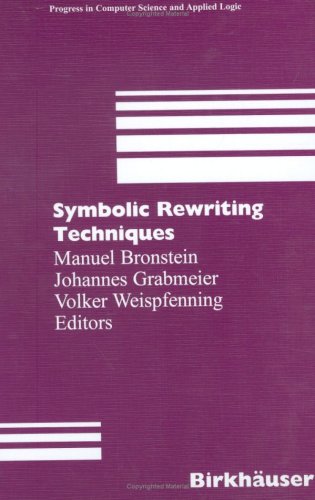Progress in Theoretical Computer Science
2 total works
The graph isomorphism problem belongs to the part of Complexity Theory that focuses on the structure of complexity classes involved in the classification of computational problems and in the relations among them. It consists in deciding whether two given graphs are isomorphic, i.e. whether there is a bijective mapping from the nodes of one graph to the nodes of the second graph such that the edge connections are respected. It is a problem of considerable practical as wen as theoretical importance that is, as of now, unresolved in the sense that no efficient algorithm for it has yet been found. Given this fact, it is natural to ask whether such an algorithm exists at an or whether the problem is intractable. -Be book focuses on this issue and presents several recent results that provide a better understanding of the relative position of the graph isomorphism problem in the class NP as well as in other complexity classes. It also uses the problem to illustrate important concepts in structural complexity, providing a look into the more general theory.
'The book is basically self-contained; the only prerequisite for reading it is some elementary knowledge from Complexity Theory and Probability Theory. Its level of presentation makes it eminently suitable for a seminar or graduate course devoted to the problem, or as a rich source of examples for a standard graduate course in Complexity Theory.
'The book is basically self-contained; the only prerequisite for reading it is some elementary knowledge from Complexity Theory and Probability Theory. Its level of presentation makes it eminently suitable for a seminar or graduate course devoted to the problem, or as a rich source of examples for a standard graduate course in Complexity Theory.
v. 15
Symbolic Rewriting Techniques
by Manuel Bronstein, etc., J. Grabmeier, and V. Weisfenning
Published March 1998
Symbolic rewriting techniques are methods for deriving consequences from systems of equations, and are of great use when investigating the structure of the solutions. Such techniques appear in many important areas of research within computer algebra: the Knuth-Bendix completion for groups, monoids and general term-rewriting systems; the Buchberger algorithm for Grobner bases; the Ritt-Wu characteristic set method for ordinary differential equations; and the Riquier-Janet method for partial differential equations. This volume contains invited and contributed papers to the "Symbolic Rewriting Techniques" workshop held at the Centro Stefano Franscini in Ascona, Switzerland from April 30th to May 4th, 1995. The workshop brought together 40 reseachers from various areas of rewriting techniques, the main goal being the investigation of common threads and methods. Following the workshops, each contribution was formally refereed and 14 papers were selected for publication.

